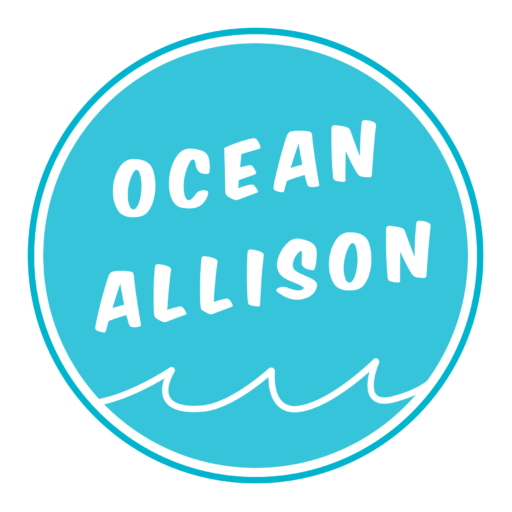Dr. Andy Nosal: Leading shark biologist
Podcast Episode #3
Andy is a shark scientist studying the biology and ecology of leopard sharks in Southern California. He is currently completing his postdoctoral work at Scripps Institution of Oceanography. As one of the world’s leading shark researchers, he most recently found that smell contributes largely to a shark’s sense of direction. As a great science communicator, Andy is also passionate about changing the way people perceive sharks.
Follow @andrewnosal on Twitter and learn more about Andy’s leopard shark research in this National Geographic article and this Scripps Institution of Oceanography article.
Katelyn Cucinotta: Conservation biologist tackling marine debris
Podcast Episode #2
Katelyn is a Conservation Biologist in South Florida determined to rid the oceans of marine debris. She currently runs the Healthy Habitats and Oceans (H2O) Program at Sea to Shore Alliance. Hear how Katelyn’s passion for science, education, and communication allows her to create positive change for the ocean through social media campaigns, beach cleanup events, and classroom visits.
Connect with Katelyn via the Sea to Shore website, Facebook page, and Instagram.
Help support her Healthy Habitats and Oceans (H2O) mobile classroom crowdfunding campaign!
Chris Cilfone: Award winning ocean filmmaker
Podcast Episode #1
Chris is an award winning ocean film maker, founder of Be Blue, and a whale naturalist currently living in Hawaii. His film “One Voice” won Best Short Film in the 2015 BLUE Ocean Film Festival. Chris is an inspiration in using what you have to create positive change for the oceans. With only a GoPro and a custom made rigging, he was able to create a moving film that has been recognized internationally.
Watch Chris’s award winning ocean conservation film “One Voice” and follow Be Blue on Facebook and Instagram!
Podcast Release
I’ve officially launched my podcast: Ocean Allison!
Through this podcast I bring listeners the best in ocean science, education, and conservation through conversations between me and people who are creating positive change for the ocean.
Over time, I have had the opportunity to meet so many incredible individuals working to make the ocean, and the planet, better. By highlighting them on my podcast, I can help expand the reach of their ocean passion and knowledge, while hopefully inspiring listeners to be ocean advocates at the same time.
The first episode of Ocean Allison features ocean advocate Chris Cilfone. Chris is an award winning ocean conservation filmmaker, a whale naturalist in Hawaii with Pacific Whale Foundation, and the founder of the Be Blue movement.
Chris’s film “One Voice” won Best Short Film in the 2015 BLUE Ocean Film Festival and Conservation Summit. He is an inspiration in using what you have to create positive change for the oceans. With only a GoPro and a custom made rigging, he was able to create a moving film that has been recognized internationally.
You can listen to weekly Ocean Allison episodes on:
- Podcast App for iPhone —– (Subscribe and leave a review!)
- Soundcloud —– (Follow me!)
If you are inspired by Chris and his amazing work, and want to contact him, you can send him a message through his Be Blue Facebook page.
An Unexpected Victim of Bycatch
Bycatch.
Bycatch is the accidental entanglement or capture of an animal that was not the intentionally targeted species of a fisherman.
Large scale bycatch is the result of fisherman using less selective fishing gear, such as long lines, which attract anything that swims by, or bottom trawls, which scrape everything in their path off of the seafloor. In some fisheries, the percentage of bycatch will even outweigh the percentage of targeted catch.
Thus, bycatch is one of the principal threats to the biodiversity and health of our ocean.
Marine animals that are often caught as bycatch are:
- Turtles
- Sharks
- Marine Birds
- Dolphins
Today, however, I saw first-hand a very different species fall victim to bycatch.
A human.
While my boyfriend and I were out surfing this morning, he was hooked by a fisherman on the beach. The fisherman was casting his line out into the waves where we and several other people were surfing. After catching a wave, my boyfriend jumped off of his board and felt a sudden pull on his ankle. After a moment of confusion as to what was happening, he looked up to see that there was a fisherman reeling in his line, pole bent, thinking he had caught a big fish.
But it wasn’t a big fish. It was a man.
Luckily, my boyfriend has only a small little puncture wound, and is completely fine.
Beyond the fact that he could have potentially been badly injured, or the fact that fishermen shouldn’t be fishing where people are swimming and surfing, this incident has really made me think about bycatch in a whole new light.
As the fisherman was trying to reel him in, my boyfriend felt immense confusion and fear and yelled out screams for the fisherman to stop. And in fact, the fisherman didn’t actually want to catch a human, so he stopped and “let my boyfriend go”.
Millions of marine animals experience those same feelings for the same reason: no reason.
Animals that are victims of bycatch are injured and killed for no reason other than the fact that they were swimming in the ocean, just like my boyfriend was.
Fortunately, fishing regulations, such as mandatory gear modifications and Marine Protected Areas can help reduce this waste, and are being implemented as much as possible by agencies such as the National Oceanic and Atmospheric Administration.
To learn more about bycatch visit:



